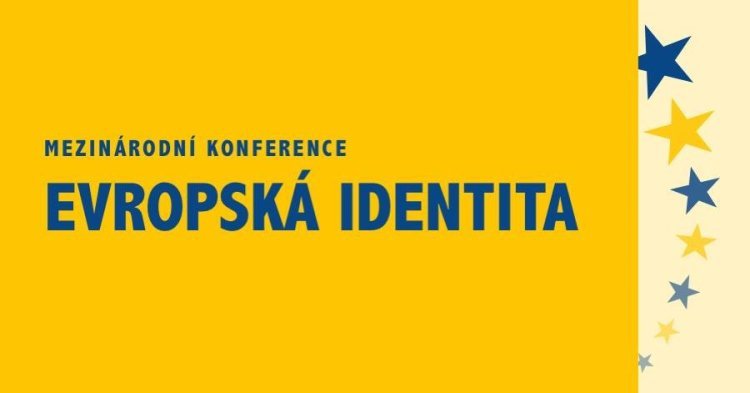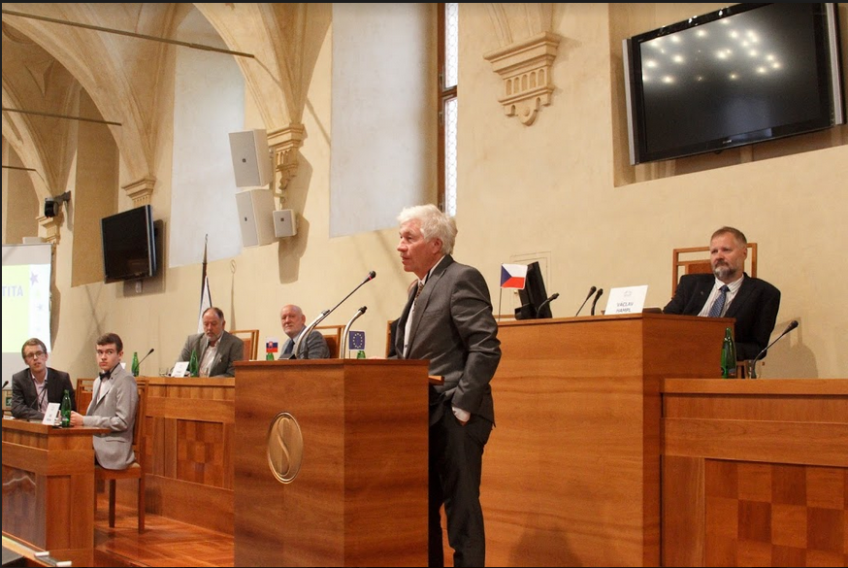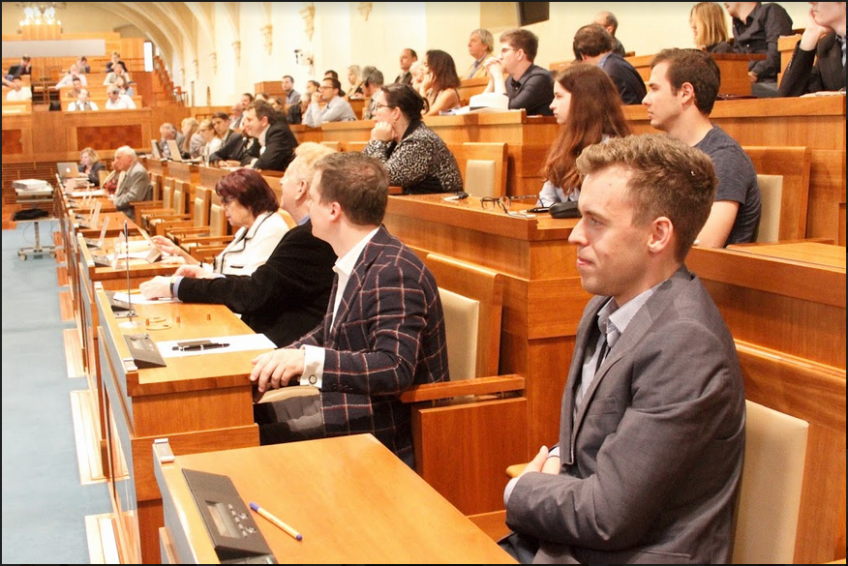The diversity of contributions given by the guests on the panel created a healthy debate where each could defend his definition and limits of European identity. This plurality of points of view could be also explained by the different nationalities inside the panel; they could be from neighboring countries of Czech Republic, France, Italy or even countries that in one way or another stood at the founding of modern Czech state 100 years ago.
Thus, we will learn more about the views of the ambassadors of three European states to the Czech Republic: Roland GALHARAGUE (French Ambassador), Aldo AMATI (Italian Ambassador), Peter WEISS (Slovak Ambassador). Besides the project of European unity around a similar identity, the exchange revealed real fear and several concerns of each nation. We will tackle some of those concerns and fears.
The most relevant concern launched during the debate was the fear of an hyper-Europeanization of the continent. Indeed, since the beginning of the 21th century, the number of members of the European Union increased. From 6 founder states in 1957, we are today 28. Even if your country doesn’t take part in the organization, it has to tackle with the EU-inspired political, economic and cultural environment. Otherwise, it will be politically, economically, culturally isolated from the rest of the continent and you will be considered a stranger to the European identity. Take the example of the Czech Republic. This state decided to keep its national currency : « the crown ». However, it also deals with the EU currency: « the euro ». In some area, you can even pay with euros, and all the main state finances are strictly close to the economic European Union.
Why have they taken this decision? The Schengen area and euro currency represent a source of pride according to some members of the panel. They permit easy trade and travel and unify the continent, enabling European citizens to move easily inside their community area. Even though, the Czech Republic keeps dealing with « euros » in order to be integrated into the European Union, their continued use of their own currency is a proof of their fear to be overflooded by Europe. Slovakia shares the same reluctances according to the ambassador; They are afraid to lose their national identity.
Both nations have had a similar historical experience - being flooded by a superior community or nation. That explains the current spring of nations. Nationalist movement is rising across Europe, and especially in eastern-central Europe. They claim their ethnical identity because of their fear of the project of European identity. This friction point constitutes the main issue as it is observed across the continent.
According to our guest; Rolland Galharague, and a large part of the panel, « We are all Brussels » in the European Union. It was also said that « the European Union is us, citizens ». With those sentences, Mr. Galharague launched an interesting reflection divided into several roots. One of those was about the implication of citizens in the elaboration of the European Union. In fact, we are really involved only once every 5 years.
If The E.U is us, we need to be a part of European decisions about economy, ecology, sensitive questions... The panel led to this thought and argued that members of E.U have done numerous efforts to integrate citizens in European decision-making. The example of the blossoming of debates about European key issues across Europe has been highlighted.
Another root was developed about the following question: « Why are we European ? ». The panel agreed in its entirety to the fact that this is a key question regarding which every citizen has to express themselves.
To promote the European community we have to share core values and views about human rights, freedom, democracy, ecology, war. We need the public opinion to enable that kind of sharing and understanding. Without an agreement about permanent key values, decided by European citizens, we cannot build a real community. We have to keep our diversity. Our panel also added the necessity to find an efficient mechanism to get the EU working; today’s European citizens do not care about European decision because we don’t know our own core values.
European politicians are the same, they do not really care about the opinions of Europeans regarding the main issues. As a result, we have today a heterogeneous Europe which is facing the migration crisis from Africa. In fact, our debate revealed the necessity of exchanging ideas together with citizens in order to establish a real collaboration in Europe. We need to disscuss, decide, act collectively; it will permit us to write our global history of Europe.
This Panel led to several questions more or less parallel to the European identity. I guess the question of European identity has to be the main debate for today’s Europe. Why? In order to build a community, we first need to know what we are. What do we want to be? What will we fight against? How will we work together? When European citizens will find their identity, Europe will function properly.




Follow the comments: |
|
